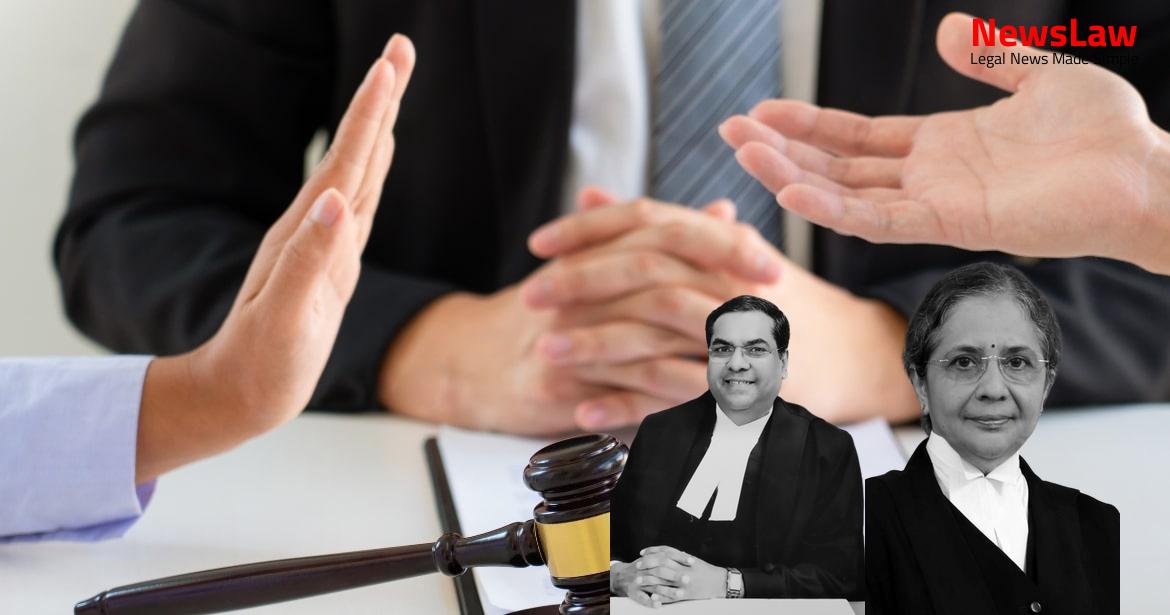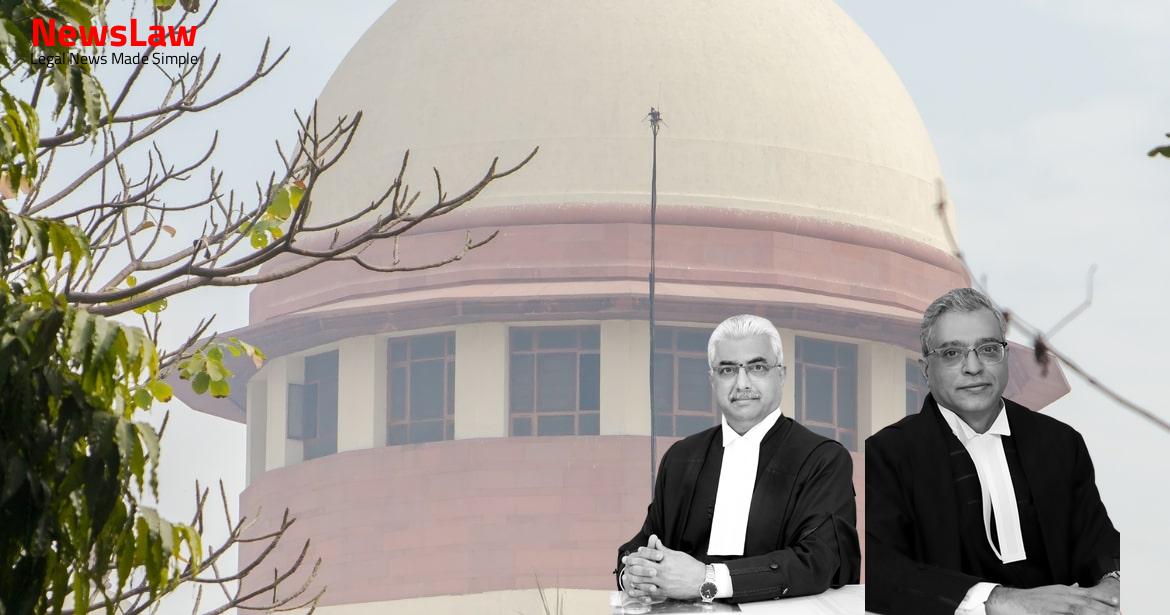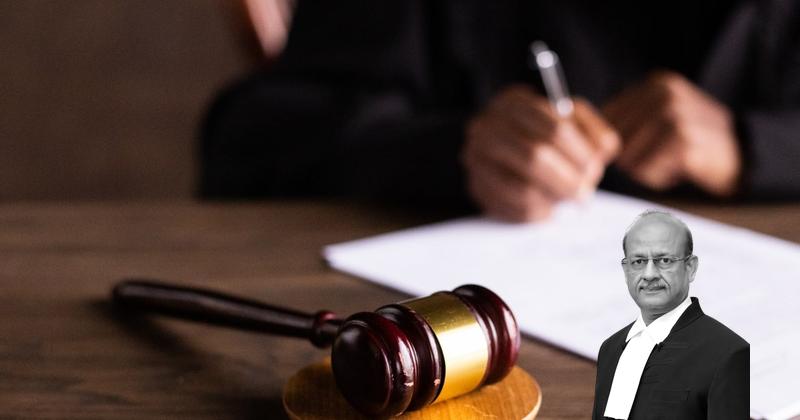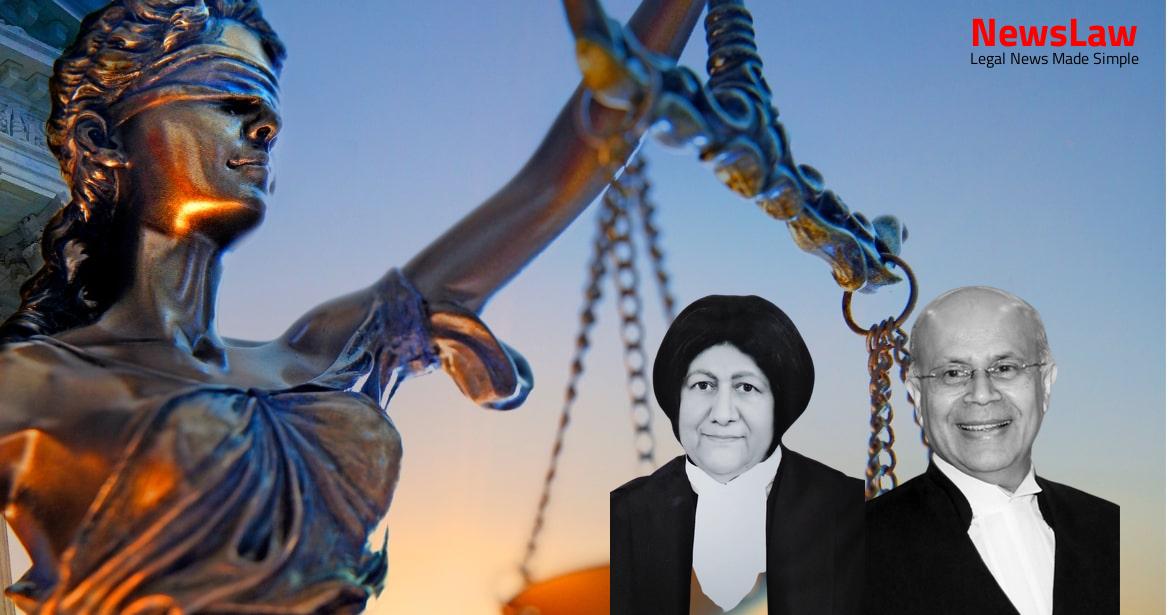Delve into the critical analysis of the court’s examination of judicial integrity and disciplinary proceedings in the recent legal case. The judicial review power of the court is limited to ensuring the decision-making process adheres to natural justice, statutory regulations, and fairness. The court maintains that judges must exhibit impeccable integrity both on and off the bench, with disciplinary actions rooted in ethical firmness and adherence to high moral standards. Let’s explore the significance of upholding integrity in legal judgments and the implications for the legal profession as a whole.
Facts
- The Full Court Meeting of the High Court of Judicature at Allahabad accepted the report of the Enquiry Officer on 02.09.2006 and decided to punish the appellant by curtailing 90% of his pensionary benefits with immediate effect.
- The appellant challenged this order by filing a writ before the High Court of Judicature at Allahabad, Lucknow Bench, Lucknow.
- The Division Bench of the High Court found the punishment order in reference to charge nos. 1 to 3 as unsustainable in the eye of the law due to incidents predating the chargesheet by four years.
- However, charges 4 to 11 were upheld against the appellant, and the punishment was reduced to a curtailment of 70% of his pensionary benefits.
- The challenge in the instant appeal is against the Order dated 17.04.2019 passed by the High Court at Allahabad, Lucknow Bench, Lucknow in Writ Petition no. 496 of 2017 filed by the appellant, challenging the punishment issued by the respondent-State as a result of the disciplinary proceedings initiated for alleged misconduct as a judicial officer.
- The appellant received written submissions from the department in a departmental enquiry initiated against him on 20.01.2006.
- Appellant submitted written submissions on 10.02.2006 in the said enquiry where no complaint was pending against him.
- Charges included alleged misconduct related to awarding enhanced compensation in violation of legal principles while serving as the 11 Additional District Judge in Agra.
- One specific charge involved allegedly showing undue favor by exorbitantly enhancing compensation in favor of the son of a Counsel named Shri KC Jain.
- The Enquiry Officer found charges no. 1 to 11 as ‘Proved’ and charge no. 12 as ‘Not Proved’.
- The Enquiry Officer submitted the report for further consideration on the punishment to the Chief Justice/Administrative Committee/Full Court.
- The appellant denied all charges in letters dated 07.09.2005 and 19.09.2005.
- The appellant filed a response to the Enquiry report on 14.06.2006.
- Overall circumstances led to a reduction of the curtailment of pensionary benefits from 90% to 70% by the High Court.
- The present appeal is directed against the order passed by the High Court.
Also Read: Analysis of Bail Conditions in Criminal Appeal No. INSC 48/2024
Arguments
- Mere suspicion was not enough to prove the appellant acted due to extraneous consideration.
- After a disciplinary inquiry and due process, the Full Court of the High Court was shocked by the appellant’s misconduct as a judicial officer.
- The right to seek compensation is a property right that can be legally transferred.
- The compensation awarded by the appellant was based on market value and not on subsequent investments.
- High Court upheld many cases of enhanced compensation awarded by the appellant, indicating no extraneous considerations.
- Charges against the appellant were deemed unsustainable factually or legally due to decisions made according to prevailing laws.
- Permission was granted for arguments on the charges against the appellant for conscience satisfaction.
- The High Court has control over disciplinary proceedings of judicial officers.
- Appellant was given a fair opportunity during enquiry proceedings and the punishment imposed was proportionate.
- Evidence suggests appellant enhanced compensation to favor subsequent purchasers, violating laws.
- Reference made to a case stating a judicial officer acting with negligence, recklessness, or corrupt motive is not acting as a judge.
- No specific charge of bribery or undue favor was brought against the appellant.
Also Read: Conviction Upheld for Murder and Concealment of Body
Analysis
- The judicial review power of the court is limited to the decision-making process.
- Interference is allowed only if there are violations of natural justice or statutory regulations, or if the decision is arbitrary.
- The court should not act as an appellate authority or reassess evidence from domestic inquiries.
- High standards of conduct for judicial officers are essential.
- Undue favoritism in judicial orders is considered judicial misconduct.
- Extraneous considerations for favoritism do not have to be monetary.
- Findings in departmental inquiries stand if conducted fairly and based on evidence.
- Judges must decide cases based only on facts and applicable law, not extraneous reasons.
- The concept of ‘gratification’ extends beyond monetary benefits.
- Courts do not reevaluate evidence in the role of an appellate authority.
- Perversity in a decision is assessed based on whether a reasonable tribunal could have arrived at the same conclusion.
- Interference in disciplinary matters is allowed if natural justice or statutory regulations are violated, or if the order is arbitrary, mala fide, or based on extraneous considerations.
- Regular disciplinary proceedings were conducted against the appellant with full opportunity for defense.
- Judges are expected to uphold high standards and ethical firmness despite societal standards.
- The right to seek compensation is a property right and can be transferred.
- Judges hold an office of public trust and must adhere to high moral and ethical standards.
- Judges represent the state and need to maintain integrity higher than in other institutions.
- Integrity and impeccable character are essential qualities expected of judges.
- Judges must exhibit integrity in their public and personal life.
- Judges should not seek shelter from societal standards and must uphold high standards of probity.
- Judges are judged by the quality of their character and judgments.
- Disciplinary actions against judicial officers cannot be based solely on the correctness of their judgments.
- Judges must maintain impeccable integrity and independence.
- Judges must be above suspicion like Caesar’s wife and exhibit the highest standards of propriety and probity.
- The judiciary’s credibility relies on judges upholding integrity, impartiality, and intellectual honesty.
- Judges must maintain the same high standards of conduct both inside and outside the courtroom.
- Courts will not interfere with findings of fact in departmental inquiries unless they are based on no evidence or are clearly perverse.
Also Read: 1991 Decree Invalid: No Determination of Rights in Property Dispute
Decision
- A judge must decide the case based on the facts on record
- A judge must apply the law applicable to the case
- Decision must be made in accordance with the law
- Deciding a case for extraneous reasons is not in accordance with the law
Case Title: MUZAFFAR HUSAIN Vs. THE STATE OF UTTAR PRADESH (2022 INSC 530)
Case Number: C.A. No.-003613-003613 / 2022



